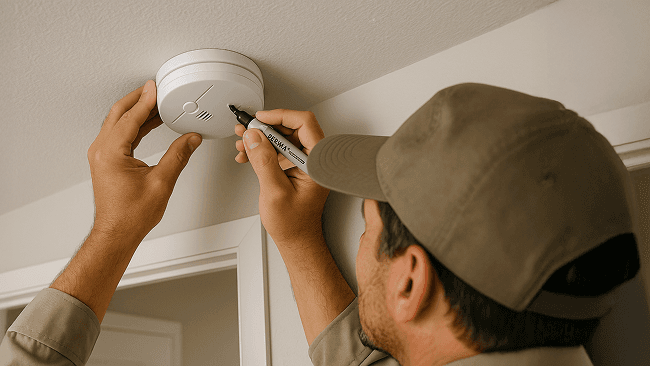Plan Ahead: Preventative Maintenance
Hello everyone. The next topic is about preventative maintenance, scheduling. As we all know, hopefully everybody's applying some type of program when it comes to prevention. For example, when you have hydro jetting of the plumbing lines that you do, and let's say you have three apartment complexes back to back, and then you decide to do a rotational hydro jetting, for example, every three, every six months.
So you start with one building, one the first six months, and then probably in the next six months you do another one and eventually the other one, and then you go back to rotating them. So always have a, a. Schedule. That's an example. Having a program maintenance schedule, doing roofs now more than ever doing roofs and making sure that there's a maintenance roof inspection and in some type of service that is being done.
But remember there's things also that may happen. Where sometimes we have delays, et cetera, always try to be ahead, create a window. For example Santa Santa Ana wins here in San, in California typically can come around November, December. So we know that's gonna happen. Why why are we gonna win until that timeframe when it happens?
Because that's what typically things can go wrong. Correct. So if if we're projected to do. At the wind, Santa, for example, are projected to be started around the season of November to December. Why do we wait until then to start doing the service? And sometimes things happen, correct? Sometimes we lose track of certain things or something happens in our properties where it gets delayed.
My, my approach has always been if I know that it's gonna happen in November, try to do it in October. But at the same time, I like to go a step ahead. Sometimes I do it between mid-September to mid-October, around that time where I begin to plan in September to go ahead and clean all my roofs, my rain gutters or for example, the tree streaming that are very close.
To the tree mean, especially when there's trees that are so close to the roofs, something that could be a problem. Or for example, if there's electrical wires crossing by our building and the trees are touching it there has to be a specific clearance. So you see, you don't have to wait until for example, the season comes.
Try to have a window between a week a month and a half before the season starts. If you get a between a month and a half to do those type of work ahead of time, and that way, that only will you feel better about yourself because you're anticipating things ahead of the time.
At the same time, you have the peace of mind that you went an extra step to make sure something was done that wasn't gonna be done anyways. But but things happen. So anticipate. Potential problems, like perhaps a contractor's not gonna be able to go in and do the work because something happens.
He's sick. Many things can happen, but if you wait until the end when you know something's already gonna be set up to be done you need to be alert. You need to be proactive, not reactive. So my advice to you when it comes to pre preventative maintenance schedule is to make sure that, yes, create your plan, but also give yourself a little bit of a window, a little bit sooner than what's predicted to be done.
So that way you are a little bit ahead of the game, and then you prevent potential problems that may happen. You may have to, for example, this contractor you have planned to already do something may happen and they cannot do the work. If you do a little bit of time earlier than what you expected, perhaps.
You'll be able to detect that earlier and able to offset by bringing another vendor, for example. Always anticipate because in what we do, there's a lot of unpredictable things that can happen. Okay? So we always have to be one step ahead whenever we can. So remember, the advice is when it comes to preventative maintenance or anything gets in general that we do, is to go ahead and try to do something that you already know you're gonna have a deadline to do.
To start a little bit earlier if you can, to make sure that you can anticipate potential problems that can go. And at the same time, get things done effectively and just in general on time. So I hope that this helps you. Remember, anticipate a little bit more ahead, more proactive instead of reactive.
And continue to do the good work. Keep it up maintenance workers because you're essential workers and you do it an outstanding job in our industry. Thank you. Bye-bye.




